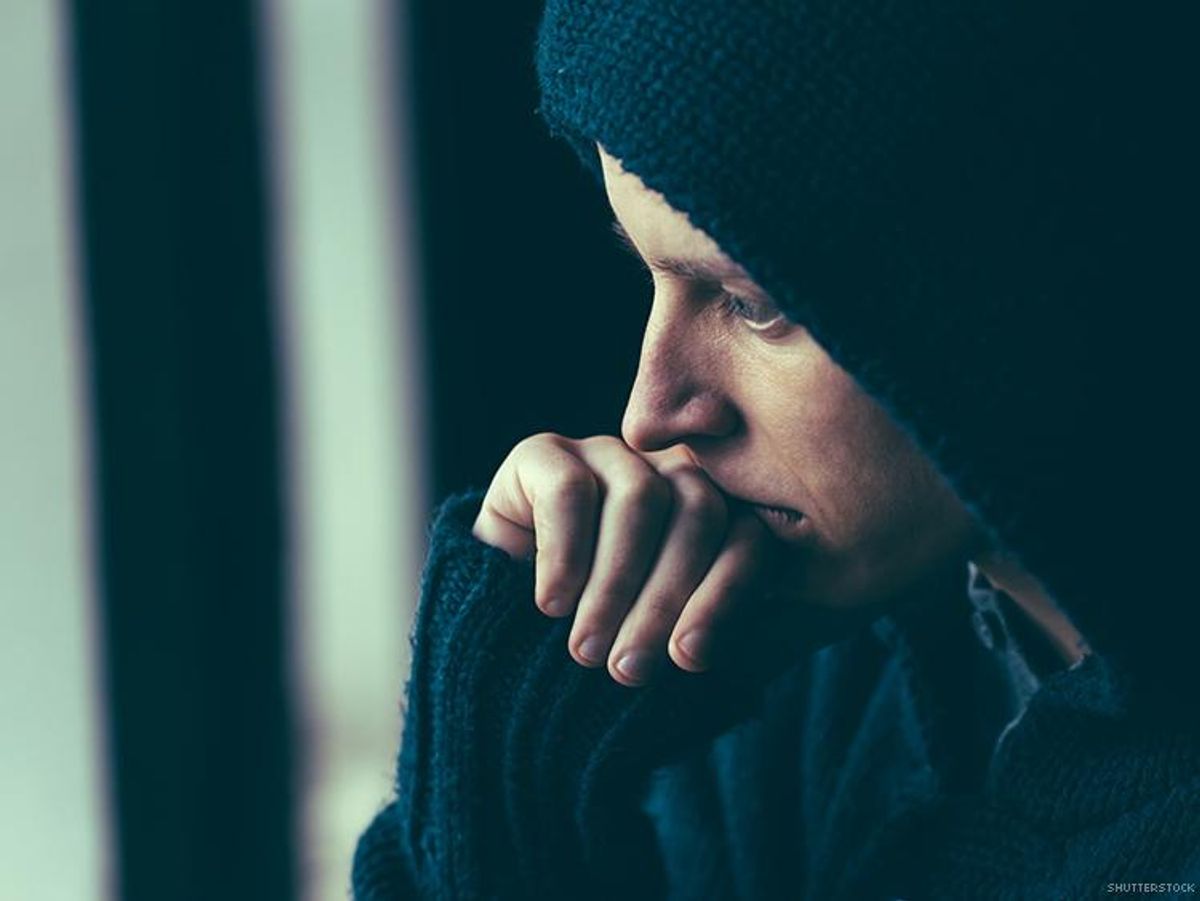History books will remember 2015 as a turning point for LGBT rights, when national marriage equality went from hazy dream to solid reality. The fact that the same year the Supreme Court legalized same-sex marriage 115 anti-LGBT bills were introduced across the country, and 160 the following year, likely won't be recalled as clearly. Except, of course, by the people targeted by them.
Many like to think of antigay Kentucky clerk Kim Davis -- who refused to issue marriage licenses to same-sex couples and was briefly jailed for her intransigence -- as a historical footnote, but the scores of antigay "religious discrimination" bills she inspired will have an effect on LGBT people far beyond what county office or florist they can patronize. In the same vein, the dozens of proposed anti-trans "bathroom bills" and an antidiscrimination ordinance voted down in the country's fourth-largest city trickle down into the self-worth of millions of queer Americans, especially impressionable youth.
Study after study shows LGBT Americans suffer from mental health disorders at rates far exceeding heterosexual people -- depression strikes gay men at six times the rate of straight men; nearly half of transgender people encounter symptoms of anxiety and depression; lesbians and bisexual women also deal with higher rates of mental health struggles than their straight sisters, with bisexual women faring even worse than lesbians. LGB youth are four times more likely, and questioning youth three times more likely, to attempt suicide as their straight peers; 41 percent of transgender people have attempted to end their lives.
Health professionals see a direct parallel between these findings and government-backed prejudice.
"Everyone understands that social stigma and discrimination against LGBT people can be hurtful, but they imagine the wounds are minimal and emotional," says Liz Margolies, a psychotherapist and the executive director of the National LGBT Cancer Network. "They are not ... they lead to mental illness, heart disease and death."
Margolies points to various studies that find a correlation between hostility to LGBT rights and a decline in mental and, in turn, physical health -- one found that LGB people who experienced "prejudice-related major life events" were three times more likely to have suffered a serious physical health problem over the next year, while another concluded that that LGB people who live in communities with high levels of anti-LGBT prejudice die 12 years earlier than peers in other locales.
Even with marriage equality, it remains legal to fire an LGB person from a job in 28 states; transgender employment discrimination is allowed in 30. A study reported that LGB respondents living in states without antidiscrimination protections are five times more likely than those in other states to have two or more mental disorders.
When anti-LGBT legislation is advanced or passed -- as it has recently in places like Georgia and Kentucky -- it's rare to hear a counterargument based on the ramifications for LGBT mental well-being. "Bathroom bills" that force gender-nonconforming people to use restrooms that conflict with their identity can physically endanger trans people, but what effect do they have on their self-esteem? How will a queer teen interpret their state senator pushing for businesses to be allowed to discriminate against him?
"I see no reason why the negative impact of discriminatory policy and the positive impact of nondiscriminatory and protective policy should not be brought up," says Clinton Anderson, the director of the LGBT Concerns Office at the American Psychological Association. "We certainly have used this reasoning as a basis for our advocacy of nondiscrimination."
Government-sanctioned intolerance has its far-reaching implications, but the inverse can also be true. A study that followed the Supreme Court ruling on marriage equality in June found a decrease in health-ravaging stress among LGBT participants. The benefits to the high court ruling are wide-ranging, points out Jack Drescher, a clinical professor of psychiatry at New York Medical College.
"The position statements of the American Psychiatric Association and American Psychological Association in support of marriage equality all reviewed the positive health benefits of marriage, in general, in making the argument that gay people should have access to those rights and benefits," he says.
Even if you're single, knowing that society supports your right to wed who you choose is good for the gay psyche. It's likely that the passage of the proposed federal Equality Act -- which would ban discrimination against LGBT people in employment, housing, and other areas -- would have the same effect.
There's also evidence that the greater community could help offset the damage of anti-LGBT prejudice and legislation. A recent study of transgender children who were allowed to transition and supported in the process by their families, showed rates of depression and anxiety similar to those of their cisgender (nontrans) peers.
Until legislators stop trying to make political gains by chipping away at our freedoms -- and until there's an end to institutional homophobia and transphobia, which will be around for decades -- that community reinforcement will be necessary for every LGBT person throughout their lives.



















































































